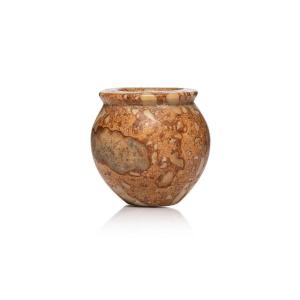Breccia.
Predynastic Egypt, Nagada II or III period, 3500-3000 BC.
History
In ancient Egypt, hardstone vessels were considered luxury items of the highest order. The art of sculpting tableware in stone reached its apogee already at times as remote as the Thinite period and the Old Kingdom. The main function of stone containers was to contain ointments or cosmetic oils and to preserve them thanks to the thickness and impermeability of their walls. If these substances had innumerable daily uses (medicines, cosmetics), they also played a leading role in religious life (offerings in temples, daily anointing of statues and objects of worship) and funerary (preparation of mummies , belief in the rejuvenating and regenerating effect of these substances). It is therefore not surprising that a very large quantity of stone containers was regularly deposited in the sanctuaries or in the funerary complexes.





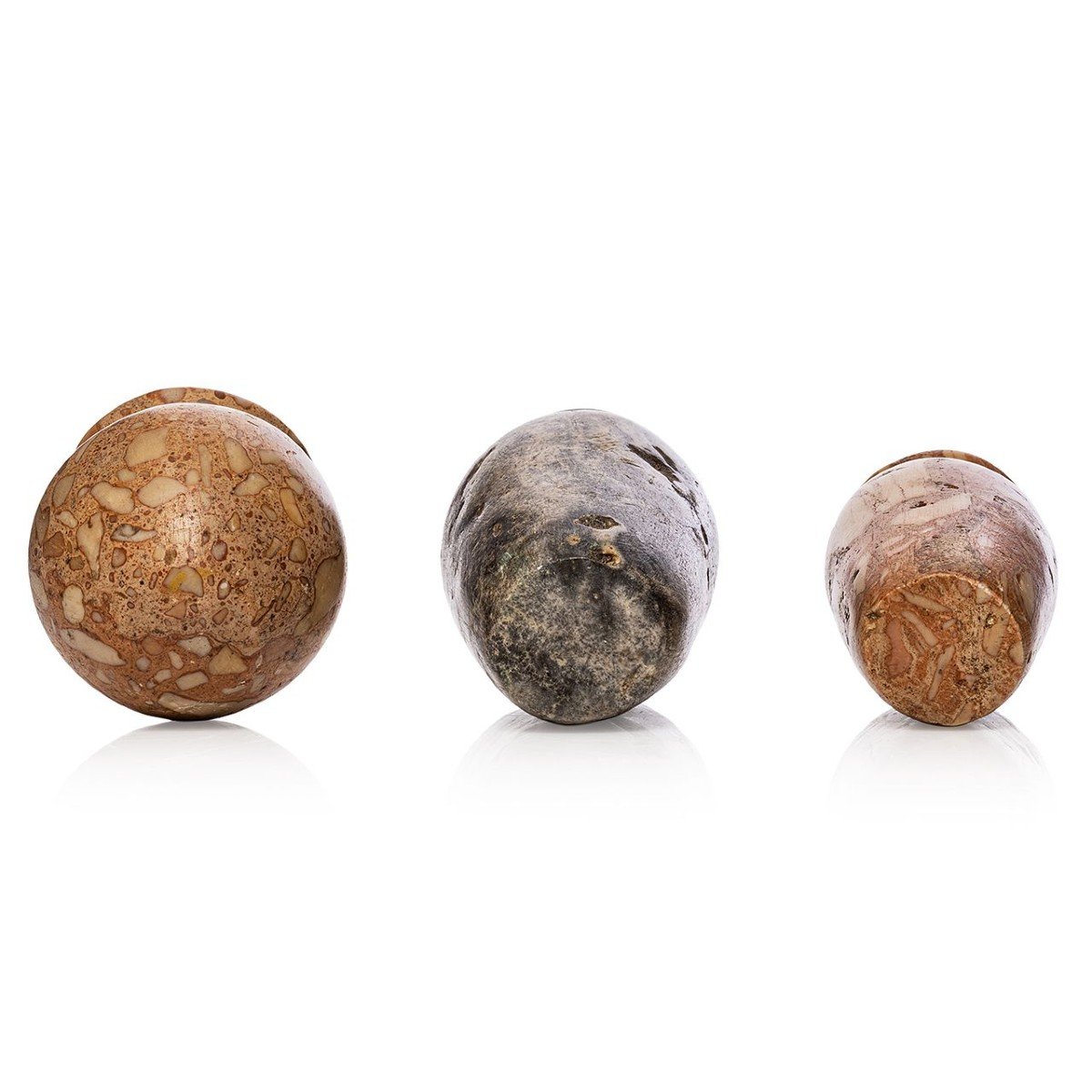



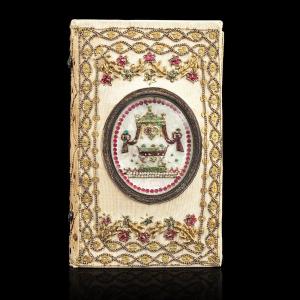
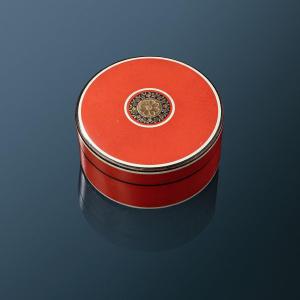




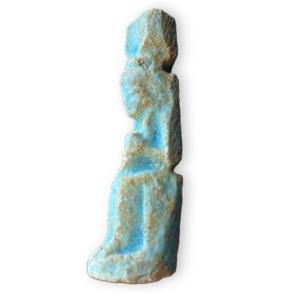
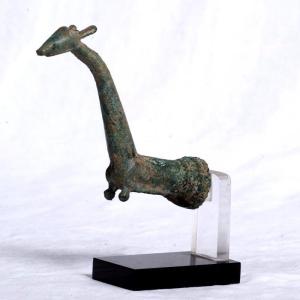
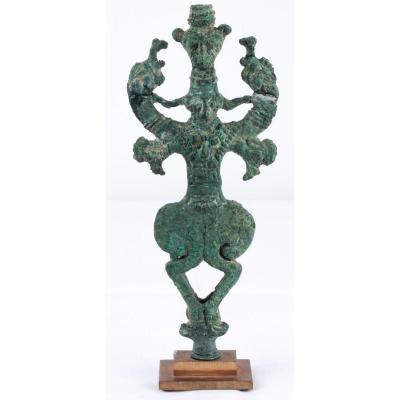



 Le Magazine de PROANTIC
Le Magazine de PROANTIC TRÉSORS Magazine
TRÉSORS Magazine Rivista Artiquariato
Rivista Artiquariato
